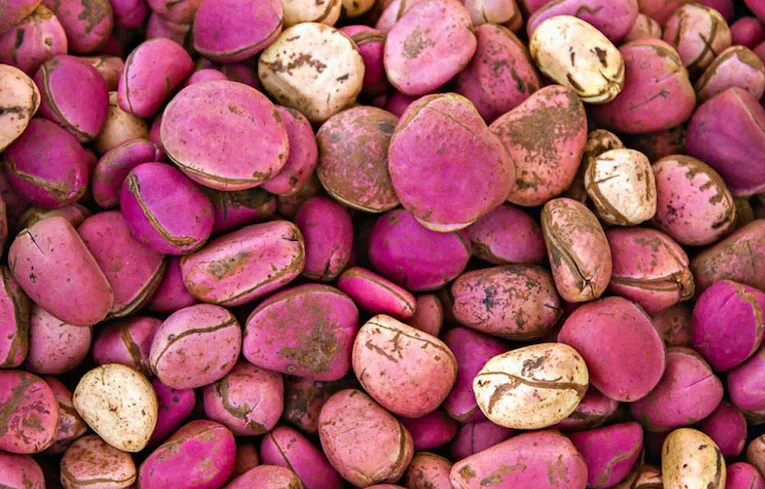Colanut farming is a money making venture while it could be regarded as alternative source of income as well. It can be done alongside other jobs.
Colanut is an important cash crop in Nigeria, especially, in the South-East, and Niger State, which has unique history of colanut production in northern part of Nigeria as well as Edo State where cola nuts forms a major base of marriage, chieftaincy ceremonies, among others.
Most people in the country consumes it not only for its spirituality, but most especially, for health reasons as it cures tiredness and constipation.
Aside from the earlier mentioned parts of the country, it also flourishes in South Western states, such as Ogun, Kwara, Osun and Oyo State.
Yoruba calls it Obi, Ishan in Edo State calls it ebhie while the northerners calls it Goro. In most families, the colanut farm or tree is inherited as it can be productive for many years.
Colanut is a source of caffeine and serves as a flavouring ingredient in beverages otherwise known as ‘cola’ and contains stimulants comprising of about 2 per cent caffeine, as well as Kolanin and Theobromine.
Speaking with LEADERSHIP, a Colanut farmer, Mr. Charles Ojo, said, colanut grows more under hot humid climate and is grown into pods; it initially has a bitter taste when chewed but later sweetens.
According to Ojo, “colanut grow well when it is planted by using the fresh nut. Planted nut use to take 5-6 weeks to sprout out and about 3-5 years to start producing fruits.
“It can be harvested manually or mechanically by plucking the pod containing fruits, after which it is opened and the fruits allowed dry to some extent.”
In most cases, colanut is cultivated by farmers for the brewery and beverage companies and it also has proved to have a lot of health benefits as it helps in digestion, prevents or treat chest colds, helps in weight loss and it is very good in stimulant.
Another colanut farmer, Mr Ike Nwakwo, said, colanut farming is profit-yielding farm which can become money-making when fully matured.
Colanut is ranked 1st in terms of production with just 1/10 of the total production being exported and the remaining locally consumed.
It is also good for coffee making by multinational manufacturing companies
Challenges
According to him, colanut has one major challenge, which is; low production/low yield. Another is lack of information on improved technology, pest and disease infestation, lack of intervention from the government, and transportation.
Though, the demand is rising, the production remains low because many of the trees in Nigeria are unfruitful or have very low yield due to self-and-cross incompatibility among trees.
“Inargueable agriculture is the back bone of the economy of most states in Nigeria where nearly 90 per cent of the population depends either directly or indirectly on it for their livelihood.
“It use to yield seeds two times in a year—May/June and November/December. The major harvest season is the later, while mild harvest is usually in May/June,” he pointed out.
Colanut Pods Processing
To process colanut pods, starts by plucking and cut open the pods with knife or cutlass to remove nuts embedded in the husks. The nuts, at this stage, are still covered with skin or coat; this is soaked in water for about 24 hours to aid fermentation.
Fermentation is complete when the skin is soft, this is then removed with hand, washed, and drained.
The washed and drained nuts are covered in basket with leaves to undergo curing.
Likewise, the duo advised would-be colanut farmer to approach soft drink and beverage manufacturers never joke with it because they produce soft drinks and beverages in mixture of cola nuts.
“Getting in touch with beverage and soft drink manufacturers can help colanut farmers make huge profits,” they said.











